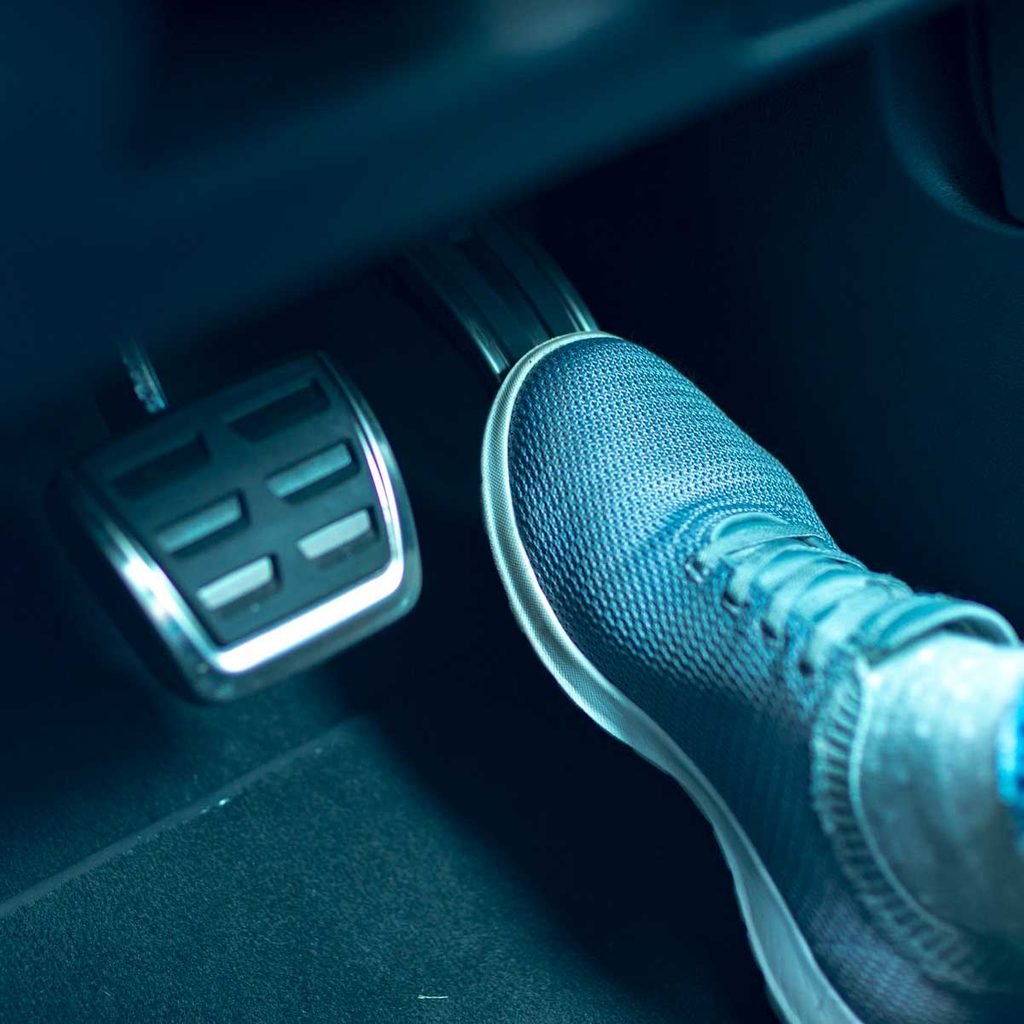Why Is My Car Not Accelerating Properly?
Updated: Mar. 21, 2024

If you can't pick up speed when accelerating to drive uphill or merge onto a busy road or highway, it's not only annoying, it can be dangerous.
There are dozens of reasons why your vehicle may be straining to accelerate. When stepping on the gas pedal, many systems, components and sensors need to work seamlessly to power your car forward. A failure in any of these can result in acceleration problems. Let’s see what it takes to deliver the power you need and expect.
On This Page
How Does a Car Accelerate?
To develop the power to quickly accelerate, an internal combustion engine needs to breathe. Here’s how: It takes in a precise amount of air and fuel that is compressed and ignited in the combustion chamber, then exhaust gases are quickly exhaled out the tailpipe. Anything that disrupts this delicately balanced process results in power loss.
Since the early 1980s, engine performance has been controlled by an engine control module (ECM) that uses data from several sensors to manage the combustion process. Let’s look at some of the common problems and other malfunctions that cause low power and slow acceleration.
What Causes Car Acceleration Problems?
Hiccups in air and fuel delivery and sensor issues are the main causes of poor acceleration. However, mechanical issues can also be the cause of low power. Here’s what you need to know.
Air Delivery Problems
- If your car is not accelerating properly, check the air filter. The air filter traps dirt, debris and other impurities to keep them from entering the combustion chamber. A clogged air filter starves an engine of much-needed air, skewing the air/fuel mixture that affects acceleration.
- A failing or dirty mass air flow sensor (MAF), idle air control (IAC) valve or gummed up throttle body “butterfly” valve will also affect air flow into the engine, causing it to strain when accelerating. There are many DIY cleaners on the market that allow you to clean the air intake system.
- The throttle position switch (TPS) measures throttle plate movement and position and helps maintain the proper air/fuel mixture. Bad TPS data affects engine speed, which impacts acceleration. Fixing this should be left to the pros.
Fuel Delivery Problems
A dirty or clogged fuel system can starve an engine of fuel and is always a likely cause of low engine power. Culprits include a dirty fuel filter, clogged fuel tank strainer, clogged or failing fuel injectors, or a defective fuel pump. On most vehicles replacing the fuel filter is a DIY operation.
Ignition Problems
Ignition systems are designed to produce a powerful spark to ignite the air/fuel mixture. Dirty or worn spark plugs and bad ignition wires or coils prevent fuel in the combustion chamber from completely burning, resulting in lost power. Replacing spark plugs and wires is a DIY operation. However, diagnosing and replacing coils is best left to your mechanic.
Emission Control Sensors
- The oxygen (O2) sensor measures oxygen levels in the exhaust system after combustion. A damaged, dirty or slow-reacting O2 sensor results in a rich or lean air/fuel mixture and sluggish acceleration. Replacing an O2 sensor can be a DIY project, but it is critical to know if a sensor(s) is bad before you replace it.
- Cam/crankshaft sensor data is used by the ECM to sync fuel delivery and spark timing. Mismatched fuel delivery and ignition timing, even if off a few milliseconds, will cause your vehicle to accelerate poorly. These sensors are best left to the pros to diagnose and repair.
- Any failing emission control device can, and most likely will, illuminate the Check Engine light. If the ECM senses a serious problem, it may engage “limp home mode,” reducing engine power to protect the drivetrain from damage.
Mechanical Issues
- Trapped exhaust gases from a collapsed catalytic converter, or a muffler clogged with leaves and acorns, inhibits your engine’s ability to breathe. Because exhaust cannot escape, excessive back-pressure build-up can significantly reduce engine power. This fix is one for your mechanic.
- A slipping clutch disc not fully engaging the transmission to the engine will cause lack of power, even though you hear the engine racing. It could be a simple cable or linage adjustment, low “clutch master-cylinder” hydraulic fluid, or time to replace the clutch disc and pressure plate. An automatic transmission low on fluid will also present the same “slipping” symptoms.
- A worn timing belt/chain that has “jumped-a-tooth,” knocking spark timing out of sync, will cause reduced power and acceleration problems. Timing belt repairs should be left to your mechanic.
- A car not accelerating properly when you step on the gas pedal should be professionally checked and repaired immediately. Continuing to drive with these issues can result in more extensive, expensive repairs. Many of the repairs suggested here are easy and inexpensive. If they don’t resolve your acceleration issues, take your vehicle to a reliable, professional technician to determine what is causing your vehicle’s acceleration problems.
